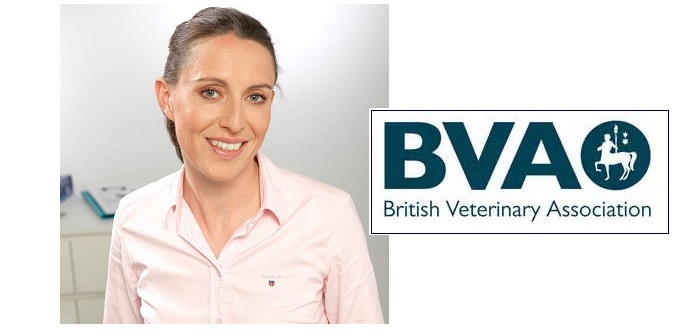The UK’s exit from the EU will exacerbate recruitment problems for the veterinary profession, making the placement of vets on the Shortage Occupation List an immediate priority, according to British Veterinary Association (BVA) and Royal College of Veterinary Surgeons (RCVS) in their joint response to the Migration Advisory Committee’s Call for Evidence on the impact of the UK’s exit from the EU.
Recruitment and retention of vets has been a growing concern in the UK. The joint submission points to evidence from recent surveys indicating a current workforce shortage of 11% in small animal practice and an overall deterioration in the ability of practices to hire suitably qualified staff (see notes for editors).
There have been previous calls for the profession to be placed on the Shortage Occupation List, which would reduce restrictions on recruiting veterinary surgeons from abroad, and this will become a necessity post Brexit. Following the exit from the EU, existing shortages will likely worsen, whilst changes in trade could increase the demand for veterinary skills, producing a shortfall in the UK’s capacity to ensure animal health and welfare, food safety and public health.
Currently about half of vets registering each year in the UK are graduates from the EU. If there are no appropriate immigration measures in place when the UK leaves the EU, this EU contribution could decline, leaving a large gap in the veterinary workforce. Research among BVA members has indicated that since the EU referendum, about one fifth are reporting that recruitment has already become harder. Whilst a study commissioned by the RCVS has shown that nearly a third of vets and vet nurses whose nationality is non-UK European are considering a move back home.
Although the veterinary profession is relatively small (around 23,000), it performs a range of roles that are vital to the UK’s economy and maintaining standards in society. Agriculture and food production would suffer from a lack of veterinary input, potentially reducing its livestock outputs worth £12.7bn in 2016, whilst the equine industry and aquaculture would also struggle. The companion animal veterinary market, that has a turnover of £3 billion, could experience significant losses due to workforce shortages.
Veterinary surgeons from the EU make a particularly significant contribution to critical roles in public health with estimates suggesting that 95% of Official Veterinarians working in abattoirs are from overseas and the large majority of these are from the EU. Reducing the veterinary presence in slaughterhouses would increase the risk of food fraud, provide the potential for animal welfare breaches and remove a level of public health reassurance.
While the number of UK veterinary graduates has increased year-on-year from the established veterinary schools, with potentially more schools in the pipeline, it is unlikely that UK universities can meet this increased demand in the short timeframe required. BVA, RCVS and Defra recently launched the Veterinary Capability and Capacity Project (VCCP) to help ensure the veterinary sector can continue to play its role in society.
British Veterinary Association Senior Vice President Gudrun Ravetz said: “Our members have been reporting problems with recruitment and retention of vets for several years and this situation will only worsen under Brexit unless appropriate measures are in place. Vets are vital to our society. Across the UK vets are needed to certify imports and exports, conduct cutting-edge research, prevent disease outbreaks, ensure food safety in abattoirs and achieve our world leading standards in animal welfare.
“We are setting out a very strong case to add the profession to the Shortage Occupation List now to help us manage the immediate shortfall in critical veterinary roles, while the UK negotiates a longer term immigration policy that must meet the UK’s veterinary workforce needs post-Brexit without creating disproportionate administrative burdens for veterinary businesses.”
Chris Tufnell, RCVS Senior Vice-President and Chair of the College’s Brexit Taskforce, said: “The first of our recently published Brexit Principles is that ‘vital veterinary work continues to get done’. In order to ensure this is met we want the Government to recognise that there are significant current and potential shortages in the profession that can only be mitigated by putting it on the Shortage Occupation List so that animal health and welfare and public health is safeguarded.
“Our ideal outcome is that EU veterinary surgeons currently living and working in the UK are allowed to stay indefinitely and that, in terms of any post-Brexit immigration system, graduates of European schools accredited by the European Association of Establishments for Veterinary Education (EAEVE) are allowed to work here with the minimum of restrictions.”


